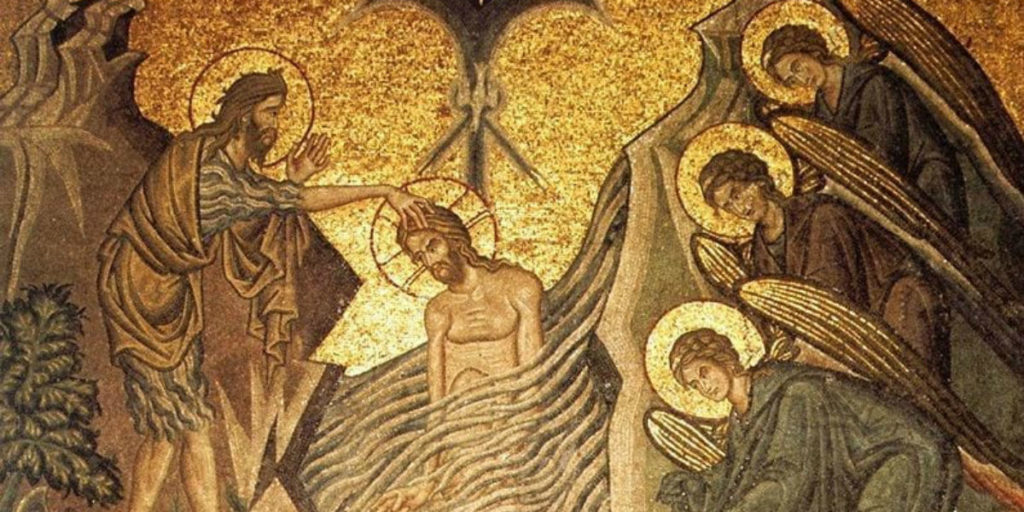
The Trinitarian Beauty of Adoption: The Son
In the previous post, we began to explore the Trinitarian contours of the doctrine of adoption. We saw how the Father in eternity past predestined us for a relationship with him. He predestined us for adoption as sons in his family. In this post we will see how this adoption into the family of God is through the Son. We have been adopted by the Father through the Son, by the Spirit into the family of God as sons and daughters, not by nature but by grace.
The second person of the Trinity, the Son of God, is the natural Son of God through whom all the redeemed are adopted into God’s family. Irenaeus is one of the earliest Christian writers to reflect on the significance of the work of the Son in our adoption into God’s family.
For it was incumbent upon the Mediator between God and men, by His relationship to both, to bring both to friendship and concord, and present man to God, while He revealed God to man. For, in what way could we be partakers of the adoption of sons, unless we had received from Him through the Son that fellowship which refers to Himself, unless His Word, having been made flesh, had entered into communion with us? (Against Heresies, III.18.7)
What Irenaeus helps us to see is that it is in union with Christ, who is the Son by nature, that we are made sons by grace. The Westminster Larger Catechism makes this same point saying that in communion with Christ, Christians are made partakes in justification, adoption, and sanctification (WLC 69). It is through the work of the Son of God that we are made sons of God.
Sons of God
This is the point that Paul makes in Ephesians 1 when he says that the Father “has blessed us in Christ with every spiritual blessing in the heavenly place.” In Romans 8 Paul lays out the way that this happens. He says God did what the law could not do by sending his own Son. Paul’s reflection here is on this climactic moment in which the eternal Son of God steps into history and takes on flesh. The Son of God truly becomes human. However, his coming not only has an incarnational aspect, but it also bears a sacrificial aspect, “God has done… by sending his own Son… for sin.” Christ’s work of redemption in time and space secures our adoption as sons and daughters of God.It is through the work of the Son of God that we are made sons of God. Click To Tweet
Our union with Christ, however, is made more explicit in Romans 8:17. Right before Paul’s reference to this union, he calls us “sons” of God (v. 14), “adopted sons” of God (v. 15), and “children” of God (v. 16). Then we come to verse 17 and Paul asserts that we are “fellow heirs with Christ.” We are even now fellow heirs with Christ. Whereas in Ephesians 1 Paul notes that this inheritance is already ours (“In him we have obtained an inheritance” v. 11), here Paul points to the future reality of this inheritance. We look forward to the day when we will receive our inheritance in full. We can see this “already and more to come” aspect of our adoption through a reading of Romans 8.
This is the beauty of our adoption. It is true here and now. We have all the benefits of the adoption. We partake in all the blessings of adoption now. However, there is more to come. The amazing part of all this is the reality of what has happened. We are by nature children of wrath (Eph 2:3). Yet, the reality is that the Father chooses us from eternity past to be his children. This choice comes at a cost. Grace always costs someone something. The Father’s choice of us is free of charge on our side, but it costs the Father, who sends the Son to stand in our place and bring us into his family.
Worthy of Adoption
This is where Paul’s use of the Roman concept of adoption is radically redefined. In our day and age, most adoptions are of small children or babies. During the time that the New Testament was written, it was primarily adults that were being adopted into families. A person was adopted into a new family to perpetuate the name and status of that family. This person would be brought into the family only after they had proven that they were worthy to be adopted into the family. Paul turns this adoption metaphor on its head by saying that we are adopted into the family of God not because we have proven ourselves worthy to be in this family, but solely because the Father has chosen us for this relationship and the Son secured this status in his life, death, and resurrection. We are adopted not because we have earned the right, but purely by God’s grace.We are not born into this relationship. It is given to us by grace through the work of his natural Son, Jesus the Christ. Through the incarnation and the sacrificial work of Christ on our behalf, we are made sons and daughters. Click To Tweet
This new status in the family of God as sons and daughters is freeing. It frees us to live lives in service to others. This is the beauty of what Jesus talks about in Matthew 17 when talking about the temple tax. The law required that people pay a temple tax (Ex. 30:13). However, Jesus asks Peter, “From whom do kings of the earth take toll or tax? From their sons or from others?” (v. 25). Peter’s answer is the obvious one, “From others.” Jesus then tells us that as sons we are free (v. 26). We are free from the observance of the Law as a way to merit salvation. We are free from the Law’s demands for we know that “if the Son sets you free, you will be free indeed.” (John 8:36) Yet this freedom is not a freedom from the law to do what we want, but a freedom that is used to love and serve our neighbours. We are free to see the law as the “perfect law, the law of liberty.” (James 1:25)
In eternity past the Father chose us to be his children. He lavished love on us that we might be known as his sons and daughters (1 John 3:1). We are not born into this relationship. It is given to us by grace through the work of his natural Son, Jesus the Christ. Through the incarnation and the sacrificial work of Christ on our behalf, we are made sons and daughters. In being brought into the family of God by the work of the Son, we are made free. This freedom is not liberty to do whatever we want, but a freedom that causes us to be conformed to the image of Christ, our elder brother and to give ourselves over to loving and serving our neighbour. The Father has adopted us through the Son, by the Spirit into his family as sons and daughters, not by nature but by grace. This truth radically changes everything. In the next post, we will see how the Spirit of adoption causes us to call out “Abba, Father.”

